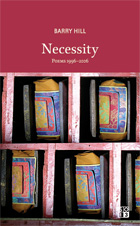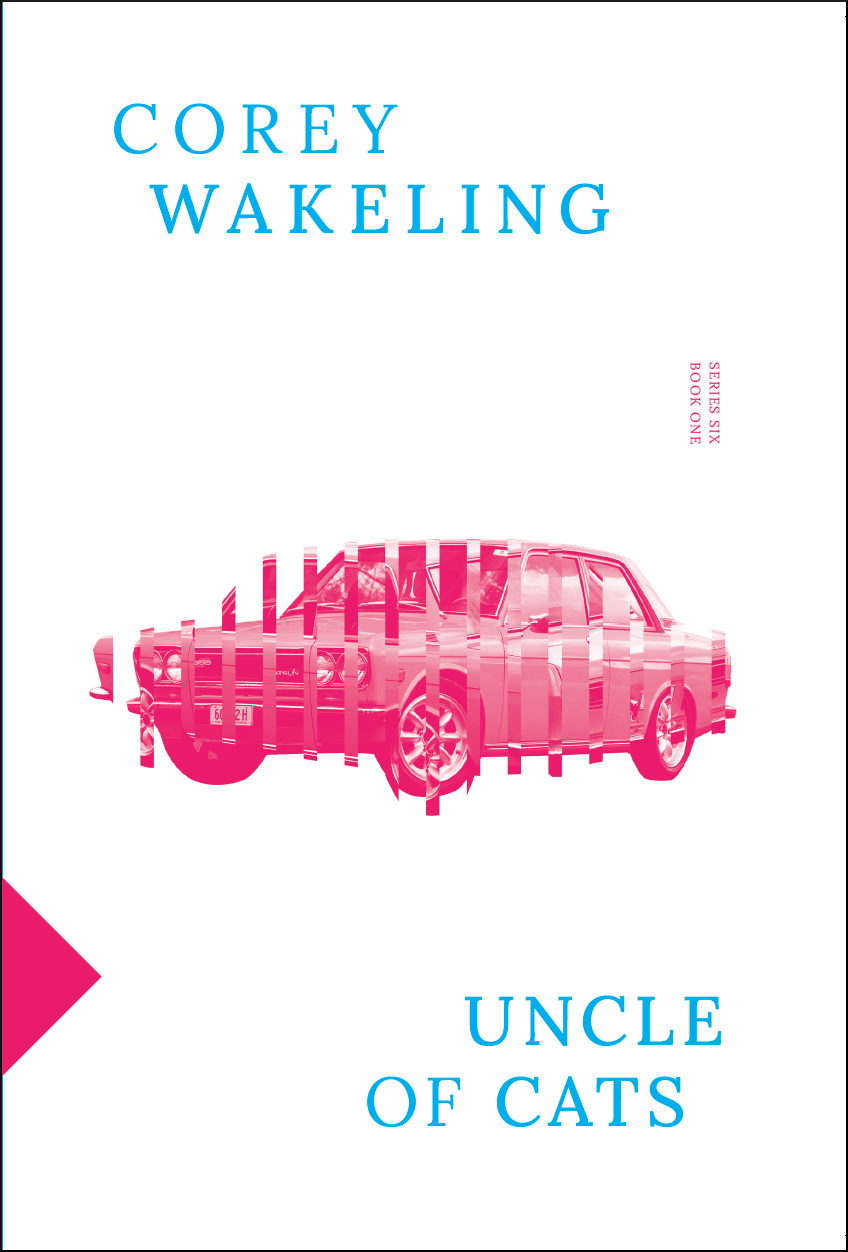 Necessity: Poems 1996-2006 by Barry Hill
Necessity: Poems 1996-2006 by Barry Hill
papertiger media, 2007
The lines below, part of the long poem 'Canto 1: Ice', go some way towards representing the tension that exists within Barry Hill's fifth collection of poetry. Written over ten years, some of the poems in Necessity: Poems 1996-2006 are political poems, some are spiritual poems, some are nature poems; many are all three. Necessity gives no easy answers and is difficult to categorise because it reads as a record of its creator's confusion, passions and ambitions. These things are never easy to codify, especially through poetry, an art form that, at its best, subverts the literal and reveals the subterranean:
Don't tell me all poetry is political
when rain is not the lake
any more than the river
the ocean, the ocean
sky. OK, Sky.
Now that's
political.
Although Hill is an award-winning poet, and The Australian newspaper's poetry editor, he is possibly better known for his prose. Hill's biography of linguist T. G. H. Strehlow won Victorian and NSW Premier's Awards, the National Biography Award and the Tasmania Pacific Bicentenary History Award among other prizes. An Overland essay, 'The Mood We're In: circa Australia Day 2004', received the 2004 Victorian Premier's Alfred Deakin Award for Best Essay. His fiction, travel writing and histories have also been widely recognised.
Throughout Hill's writing life, however, poetry has been a constant companion and compulsion. 'I've always written poetry,' Hill has said on the publisher's website in reference to this latest collection, 'but the task of finishing long prose projects has often prevented me from sending them out. In Necessity I've pulled together the poems that have helped me stay sane – politically – over the last ten years or so.'
Politics, and Hill's dialectical relationship with political engagement, certainly lies at the heart of many of the fifty-odd poems included in Necessity. References to the legacy of numerous political struggles and thinkers from the past can be found here. Many of the poems also seem to have emerged from Hill's attempts to make sense of historical and political narratives. In 'Poland', for example
I walk into the shape
of an idea, ease the tired foot
into its straps, only to slip
on the cobbles
end up in the ditch.
Start again. Think more.
The book opens with a recollection of the poet's father's funeral. It is a Union burial; the 'solid pack' surrounding the grave suggests the poet's cultural and political background. The theme of collective, working-class politics becomes a motif as Necessity's scope widens.
In the second poem the image of a young tradesman waiting for a train provokes spirals of memory, imagination and questioning. Although there is a resolution to this poem, with the poet passing through the city's 'putrid petrochemical parade' to his wife and home by the sea, Necessity is just getting started and the reader understands that this is going to be an obsessively roaming exploration of politics, history, philosophy and family.
The fifteen poems that make up the 'Gramsci in Prison' sequence are complex, carefully-rendered pieces that contain most of the themes found throughout the collection. Drawing extensively on letters written by the famous communist author and politician after his arrest under the Mussolini regime, the poems are both intense and tender. In places the Gramsci poems explore fatherhood and the experience of being a son, themes that repeatedly animate Necessity. Together they are an imaginative testament to Antonio Gramsci's resilience in the face of sensory deprivation, torture and depression. In 'Ravings (Turi, summer, 1933)', for example:
Over the Alps,
the glass is shattering –
just outside his window
out of hearing
he is toothless
insomniac, tubercular
vertebrae eaten away –
abscessesfiling away my nerves
History, its subliminal roar
as he tries to forgive himself
I have lost all capacity for rational reaction
Thematically and stylistically, the Gramsci poems are among the book's most effective. Elsewhere, some of the poems are structured in fairly regular two, three or four line stanzas. But many more feature surprising line breaks and a register that necessitates successive readings to grasp both meaning and rhythm.
At first, some of the enjambment and diction appeared frustratingly solipsistic. Indeed, there are poems in this collection that explore the frustration of searching for words to express thought. But listening to Hill read from Necessity at its Melbourne Writer's Festival launch, I was struck by the alternating weariness and vigour with which he pronounced his lines. Hearing the poems read in this way sent me back to the book, and to a new understanding of the honesty of its content – its density and sparseness – and the integrity of the content's influence on form.
Yet, while Necessity has deservedly been praised for its intellectual scope, Hill is often at his most vivid (and most accessible) when he concentrates on placing image on image to portray an event, as in 'Shelley's Casa Magni, Lerici':
A stolid cargo ship squats
on the horizon. Flagging it
here on shore, the cypress pines
await the evening air, the sea
mist, the furling of umbrellas.
In the poems set in Italy and India particularly, a fascination with the minutiae of the physical world illustrates the poet's discovery of a space beyond his dialectics. Accumulated political rhetoric ('I'm up to my knees in slogans,/peeling flesh off polemic,/flicking bones off the verandah') and 'the rosaries of analysis' have been transcended, although politics has not been abandoned. In the later poems the poet finds contentment in the observance and recording of his surroundings. The final poem in the collection shows the poet returning to a Buddhist temple in Darjeeling, weary from his travels but seemingly revitalised.
As it twists and turns, Necessity gives us poems of doubt, hope, regret, frustration and peace. Its themes and forms are not always easy to comprehend, but the book rewards repeat attempts. It is a diverse and provoking collection from a writer who, although his literary achievements and ambitions lie in many spheres, is continually drawn back to poetry.
Gus Goswell tutors in The University of Melbourne's Media & Communications program.














